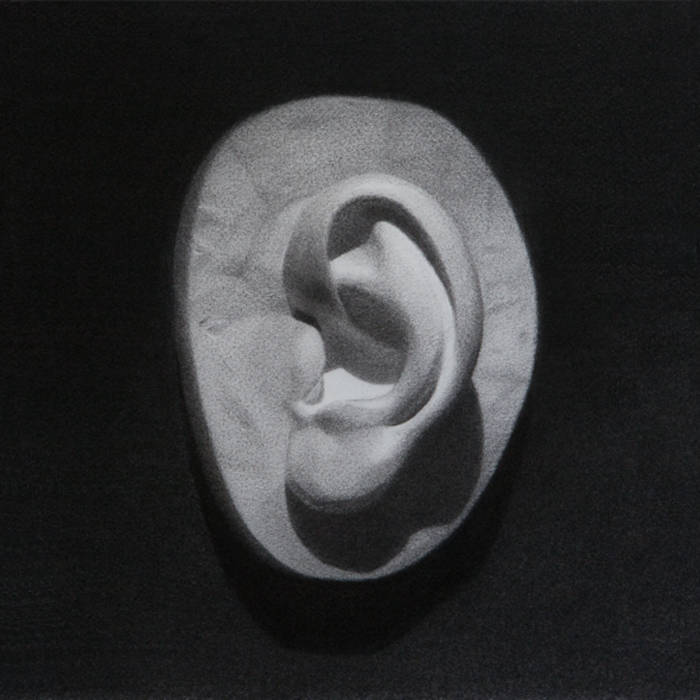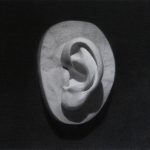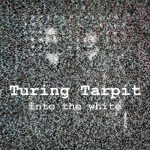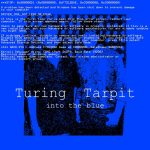
Possibly already the winners of ‘album title of the year’ for The International Obfuscated Music Contest, Turing Tarpit take their inspiration from, “all the music that our brains have processed throughout our lives” and the result so far is a unique sound vision consisting of simple, minimal instrumentation drenched in electronic jiggery-pokery. Here the trumpet ‘component’ Ramon Casamajó answers 7 questions on behalf of Turing Tarpit…
1. What was your first musical instrument, and what did it mean to you?
Trumpet. It was my first opportunity to make music, something that was a kind of frustration or unfullfilled desire until that moment. I start to learn trumpet in my early twenties when I discovered jazz and with a friend of mine we both enrolled in the school of modern music in our hometown (Badalona). We chose the trumpet because we thought that it would be a more affordable and easy instrument (we were totally wrong!!!), and we wanted to learn jazz and play like our heroes, Chet Baker, Dizzy and Miles.
2. Who or what are you listening to at the moment?
Right now, while I’m answering this question, I’m listening to Maja Osojnik’s first record. She’s a very interesting Slovenian born / Austrian resident musician that experiments with field recordings, electronics, voice and some instruments too. I read about her a while ago in Wire magazine and she’s been in my listen-to list since then. At home I listen a lot of electronic and experimental music. But I’m very eclectic in my musical interests, I try not to have prejudices. The two members of Turing Tarpit have many tastes in common. Our interest in improvised and experimental music was the meeting point that led us to start this project.
 3. What’s the balance of preparation vs. improvisation for the average live set or recording?
3. What’s the balance of preparation vs. improvisation for the average live set or recording?
Turing Tarpit was born as a live project to experiment with improvisation. At first we basically improvised everything. The first concerts were like that. But over time we realized that it was interesting to fix some things, that allowed us to play more with the structures, intensities, timbres… Now normally when we have a gig or we are going to record something, we prepare some things to have a minimum script on which to improvise. I am especially interested in playing with the formal part of performing, for example in a very simple way: limit the instruments or resources to use. I recently read about a series of Nate Wooley recordings in which he had developed a mechanical language for the trumpet, based around a set of physical embouchure and facial positions that make it very difficult to sustain notes, resulting in a loss of performer control. The aim was to approach creation as a “conscious act of technical abandonment”. I have not heard the result, but these kind of things seem fucking amazing to me! And of course we are millions of miles away from Nate Wooley.
4. What’s the one quality you think every musician must have?
Honesty. If you are honest in your work at least you deserve respect and an opportunity from the listener/audience. Of course, after that the people can love or hate your music, but that’s another question.
5. Improvisation remains an obscure, niche genre – how do you find and reach an audience for your work?
That’s a good question. Let me know if you find the right answer someday because we have no idea, hahaha. In Barcelona there is a little network of places and people interested in this kind of music, so sooner or later you end up colliding with them. We are in the process of finding bigger networks, and you are a part of it, haha.
6. Where do you stand on the streaming/downloading/file-sharing/musicians-not-getting-paid-for-their-music debate?
As a consumer I’m a fervent user of streaming services. Maybe the problem is that the major businesses still don’t offer fair treatment to the artists, but at least there is something compared with downloading/file-sharing (which I’ve practically never used, but I respect it if it’s not overdone and isn’t a substitute for the purchase of music in legal ways). For me streaming is the perfect service, but I keep buying records, of course, in any format.
The record business became history a long time ago, but for me that has little to do with the music itself. It is clear that that the industry generated interesting musical phenomena, legendary groups, but now things have changed, it is absurd to want to perpetuate that model, it no longer exists. Music as a way to make a living is going through very difficult times, I don’t know if that has a solution or how it will evolve. But even if professional musicians cease to exist, one thing is clear: there will be music as long as humanity exists.
7. If money and time were no object, what would your next project be?
Develop an audio synthesis system that could react in an intelligent, unpredictable and personalized way to our playing or some other sound source, or even other information sources (wherever we are there is information all around us, like wifi, mobile networks…) I have some ideas and I have experimented with some audio synthesis languages already (the track “Lonely oscilator” is an example).
–
turingtarpitmusic.com
turingtarpit.bandcamp.com



